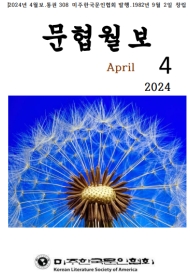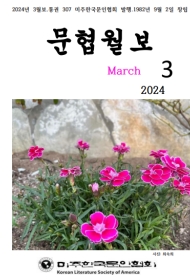Hawaii
======
Wolran Kim
October 2012
This film taught me some historical knowledge about Hawaii. Hawaii was once a sovereign nation with a monarchy as are the majority of other nations. The Hawaiian figure seems divine to the outside world with its traditional lifestyle along with its Nature Island. Queen Malama, the Alii Nui’s resolute, is clever and majestic looking as the leader. The obedience of the natives is particularly impressive. The fact that no one disobeys their leader is a completely contrasting look from modern democracy, which is always engrossed in the competition and restraint.
Malama governs the peaceful island with absolute sovereignty in a broad-minded wise goddess-like image. The other impressive fact is the missionaries’ dedication. The sacrifice of the missionaries in a strange place to devote their lives to spread the Christian faith and the love of God deserves to be venerating despite their destroying of the traditions and giving chaos to the indigenous people. There is no other religion which contributes to the development of humanity as much as Christianity. In the 1980s, the sea route took six months with the pain of nausea and constipation from Boston to Hawaii. Also, Reverend Abner’s wife, Jerusha, seems as a sample of a proper Christian life through her love and devotion for indigenous people.
This film shows cultural assimilation through the entire story as assimilation, institutional racism, cultural racism, acculturation, White privilege, and accommodation. I will observe assimilation and White privilege among them. In the collision of different cultures, especially if the degree of development of civilization is vastly different, assimilation reveals in the process, exclusion and acceptance. Cultural assimilation is a socio-political response to demographic multiculturalism that supports or promotes the assimilation of cultural and ethnic minorities into the dominant culture. The term assimilation is often used when referring to immigrants and various ethnic groups settling in a new land.
Queen Malama and her folks assimilated into missionary’s families and their new culture. Malama positively welcomed Abner and Jerusha, and learned their language and culture because they were from the land which can threaten her Island. Hawaiians believed polytheism and never hesitated to accept mightier gods. Abner emphasized the absolute God but Malama recognized his god as a better god who can protect them. Abner’s job was converting Hawaiians to Christianity and advise them of the equips of the American system of government legislation. American missionaries made them wear clothes because they were almost naked.
Abner also protected their young girls from foreign sailors, and stopped burial of live babies. Cultural assimilation appears in a variety of ways and the results are also various. The process of accepting foreign cultures is not simply mechanical or passive. Hawaiians could develop their own culture more abundantly and brought new meaning in social context through assimilation. This case is the same as that of the Third World developing countries carrying out the cultural development accepting Western science and technology.
White privilege appears sharper in the entire film. Abner’s faith, service, vocation, and thrift are monumental but also reveal the limits of the recognition of the missionaries at the time. Abner decided all aborigines as pagans and refused aboriginal midwives’ help while he helped other missionary wives with their hard delivery. When the missionary who lost his wife wanted to marry an aboriginal woman, Abner actively approved his excommunication. Their mission was based on absolute contradiction, White privilege, and they loved Hawaiian people as potential Christians, but they despised Hawaiians as individual humans. Abner’s contradiction was clearly revealed when Keoki, who was a converted Christian as son of Malama, wanted to be a pastor. Abner said to him that the Hawaiian pastor is illogical to argue and let him just encourage his people to live good lives of faith.
Keoki was skeptical of Abner’s double-face and returned to indigenous traditions and beliefs. He lost his baby after marrying his sister, and died through near tragic suicide when he caught measles. He truly loved Jesus, but his resentment and frustration to Abner’s Christianity was so deep it caused his death as an infidel. Abner’s White privilege also showed as that he isolated his four children from the native’s language even though he and his wife learned their language for preaching. He stuck to his existing lifestyle in clothing and food ignoring the wisdom of the indigenous people. Therefore, his layered clothes without swimming or taking a bath smelled with an unbearable stench and his wife died early due to overwork and malnutrition.
The assimilation of the aboriginal perspective and White privilege of culture disseminating are extreme contradictions faced; however, these had profound impacts on the mission and reform of the indigenous culture.
======
Wolran Kim
October 2012
This film taught me some historical knowledge about Hawaii. Hawaii was once a sovereign nation with a monarchy as are the majority of other nations. The Hawaiian figure seems divine to the outside world with its traditional lifestyle along with its Nature Island. Queen Malama, the Alii Nui’s resolute, is clever and majestic looking as the leader. The obedience of the natives is particularly impressive. The fact that no one disobeys their leader is a completely contrasting look from modern democracy, which is always engrossed in the competition and restraint.
Malama governs the peaceful island with absolute sovereignty in a broad-minded wise goddess-like image. The other impressive fact is the missionaries’ dedication. The sacrifice of the missionaries in a strange place to devote their lives to spread the Christian faith and the love of God deserves to be venerating despite their destroying of the traditions and giving chaos to the indigenous people. There is no other religion which contributes to the development of humanity as much as Christianity. In the 1980s, the sea route took six months with the pain of nausea and constipation from Boston to Hawaii. Also, Reverend Abner’s wife, Jerusha, seems as a sample of a proper Christian life through her love and devotion for indigenous people.
This film shows cultural assimilation through the entire story as assimilation, institutional racism, cultural racism, acculturation, White privilege, and accommodation. I will observe assimilation and White privilege among them. In the collision of different cultures, especially if the degree of development of civilization is vastly different, assimilation reveals in the process, exclusion and acceptance. Cultural assimilation is a socio-political response to demographic multiculturalism that supports or promotes the assimilation of cultural and ethnic minorities into the dominant culture. The term assimilation is often used when referring to immigrants and various ethnic groups settling in a new land.
Queen Malama and her folks assimilated into missionary’s families and their new culture. Malama positively welcomed Abner and Jerusha, and learned their language and culture because they were from the land which can threaten her Island. Hawaiians believed polytheism and never hesitated to accept mightier gods. Abner emphasized the absolute God but Malama recognized his god as a better god who can protect them. Abner’s job was converting Hawaiians to Christianity and advise them of the equips of the American system of government legislation. American missionaries made them wear clothes because they were almost naked.
Abner also protected their young girls from foreign sailors, and stopped burial of live babies. Cultural assimilation appears in a variety of ways and the results are also various. The process of accepting foreign cultures is not simply mechanical or passive. Hawaiians could develop their own culture more abundantly and brought new meaning in social context through assimilation. This case is the same as that of the Third World developing countries carrying out the cultural development accepting Western science and technology.
White privilege appears sharper in the entire film. Abner’s faith, service, vocation, and thrift are monumental but also reveal the limits of the recognition of the missionaries at the time. Abner decided all aborigines as pagans and refused aboriginal midwives’ help while he helped other missionary wives with their hard delivery. When the missionary who lost his wife wanted to marry an aboriginal woman, Abner actively approved his excommunication. Their mission was based on absolute contradiction, White privilege, and they loved Hawaiian people as potential Christians, but they despised Hawaiians as individual humans. Abner’s contradiction was clearly revealed when Keoki, who was a converted Christian as son of Malama, wanted to be a pastor. Abner said to him that the Hawaiian pastor is illogical to argue and let him just encourage his people to live good lives of faith.
Keoki was skeptical of Abner’s double-face and returned to indigenous traditions and beliefs. He lost his baby after marrying his sister, and died through near tragic suicide when he caught measles. He truly loved Jesus, but his resentment and frustration to Abner’s Christianity was so deep it caused his death as an infidel. Abner’s White privilege also showed as that he isolated his four children from the native’s language even though he and his wife learned their language for preaching. He stuck to his existing lifestyle in clothing and food ignoring the wisdom of the indigenous people. Therefore, his layered clothes without swimming or taking a bath smelled with an unbearable stench and his wife died early due to overwork and malnutrition.
The assimilation of the aboriginal perspective and White privilege of culture disseminating are extreme contradictions faced; however, these had profound impacts on the mission and reform of the indigenous culture.













